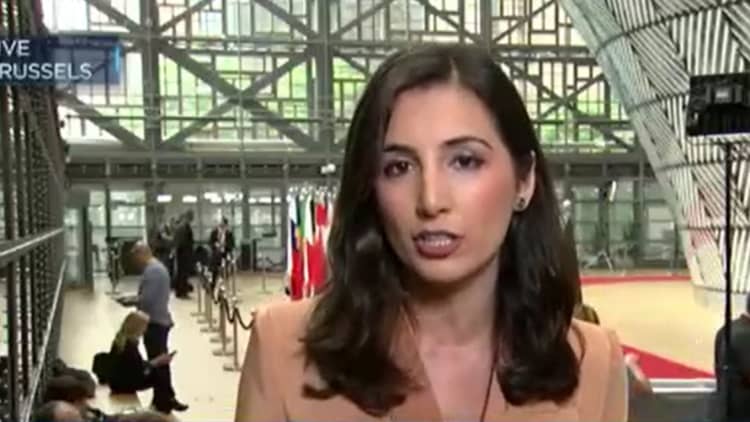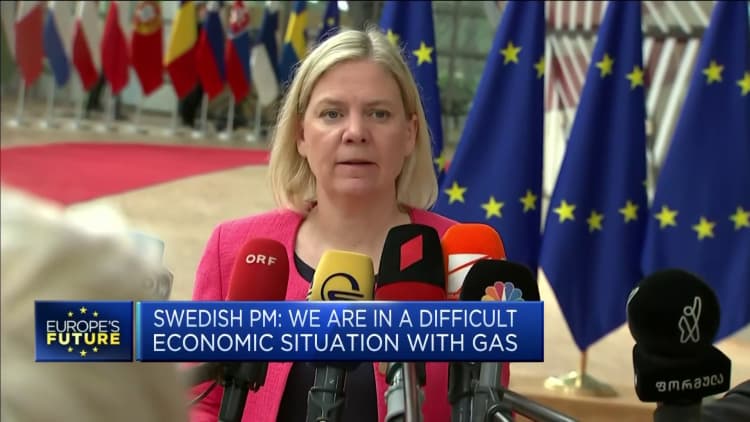
BRUSSELS — European leaders are growing increasingly concerned about the possibility of a full shutdown of gas supplies from Russia, with Italy asking for a new meeting to debate the matter.
Gazprom, Russia's state-backed energy supplier, has reduced its gas flows to Europe by about 60% over the past few weeks, prompting Germany, Italy, Austria and the Netherlands to all indicate they could turn back to coal once again.
It comes as Europe — which receives roughly 40% of its gas via Russian pipelines — tries to rapidly reduce its reliance on Russian hydrocarbons in response to the Kremlin's nearly four-month-long onslaught in Ukraine.
"Russia is diminishing the supply of gas little by little — to some countries [by] almost 100%; to others, cutting 10, 15%," Josep Borrel, the EU's top diplomat, told CNBC Friday.
"I don't think they are going to cut the gas overnight, especially as we are going into the summer and during the summer the gas is not a strategic weapon. But the winter could be difficult and we have to be prepared in Europe."
When asked if he was concerned that Russia could fully cut gas supplies, Luxembourg Prime Minister Xavier Bettel told CNBC: "I'm fully aware that they can. They can. It's their choice, natural choice. They can close or open."
He stressed the importance of all 27 EU member states agreeing on its approach to the issue. "In Moscow one person can decided by himself to cut energy to Europe."
European Parliament President Roberta Metsola said Thursday that the situation was concerning.
"We have had [concerns] since Day 1. At the end of the day, some countries are more dependent than others on Russian gas. Not only on the short and medium terms, we need to find solutions to that," she said.
Italy, meanwhile, has asked for a meeting at the EU level next month to discuss the energy and economic situations further, according to three EU officials who didn't want to be named due to the sensitivity of the matter.
Recession concerns
Reduced gas flows have deepened concerns that the EU could be about to face a tough economic period. Analysts at Berenberg said this week that the latest cuts in gas meant their new base case for Europe was recession.
"Hit harder than the U.S. by the energy price shock, we project the euro zone economy to enter recession before the U.S.," analysts at Berenberg said in a note Tuesday.
EU leaders have so far refused to talk about the possibility of a recession or a new economic crisis, but they have acknowledged that next winter will be complicated.
Speaking to CNBC Friday morning, Swedish Prime Minister Magdalena Andersson said she is ready for leaders to meet again next month, provided the bloc can announce steps to address the economic pressures.
"We are definitely in a difficult economic situation with the inflation and the shortages of gas and electricity," she said.
The European Parliament's Metsola agreed. "The next few months will be very difficult and we are concerned that we are facing a, let's say, costly and difficult winter from an energy perspective."

— CNBC's Sam Meredith contributed to this report


